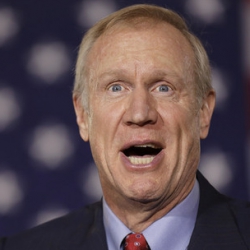Illinois state politicians are set to hear testimony on the subject of expanded gambling in the state on Monday. When the panel meets, it will call tourism and video gambling experts are going to testify.
The debate is expected to be lively, though most members of the panel being called should slant towards the pro-gambling point-of-view. Monday’s discussion will not be the last word on the issue, so people should expect the anti-gambling forces to grow louder over time.
Second of Two Meetings
This is the second meeting this month on this issue. Last week, the same state lawmakers heard testimony from gaming experts on the national gambling industry. They discussed trends in gaming, along with subjects like online casinos and market saturation.
The focus of all the debate is a proposed Chicago-area casino. Chicago Mayor Rahm Emanuel has been calling for a Chicago-owned casino in the state. Emanuel says a gaming venue will bring in much-needed revenue for the Windy City.
Several Casino Bills to be Considered
The testimony about a potential Chicago operation is part of a wider debate. In the state legislature, two different bills have been set before Illinois lawmakers. A third bill is already in the making.
Governor Bruce Rauner on May 4 said he would be open to more casinos in the state, under the right circumstances. Rauner’s predecessor, former Governor Pat Quinn, vetoed two different bills which would have expanded gambling in the state.
While key legislators are important to push a bill through the General Assembly, the governor has an indispensable role, because he can veto any legislation. Thus, 2015 is the best chance Chicago has to secure its own casino.
[Since first posting about the scheduled meeting, that meeting happened. Below are the results.]
Update: Details of Monday’s Meeting
Monday’s discussions included executives from the tourism, dining, and hotel industries. The business people said a Chicago-area casino would create thousands of new jobs, while driving business to local restaurants and nightspots.
This is a perennial debate made in a hundred locations across America in the past 10 to 20 years. Land-based gambling has expanded from 2 states in 1989 to nearly 40 states in 2015. Most of that expansion is due to the Native American casino phenomenon, which started after a landmark U.S. Supreme Court ruling in the late-1980s which established reservations as sovereign land for the tribes. Alongside tribal gaming, multi-state lottery associations, online gambling, and private-owned casinos have proliferated across the USA.
Millions Lost Every Year
Mark Gordon, the Illinois Hotel and Lodging Association’s President & CEO, said on Monday, “Millions of dollars in revenue and taxes are lost every year because neighboring states benefit from our tourists, conventioneers and residents who frequent their casinos. We need a Chicago casino so our guests will stay here, to gamble, to eat in our restaurants and to shop in our stores.”
The standard argument used by anti-gambling advocates tends to be that casinos simply siphon money from the local residents, so the advantage to the community is a net “zero”. Chicago has a vigorous tourism trade, as people from all over the country and the international scene fly to Chi-Town for business meetings, conventions, culture stops, and holiday visits. Thus, much of the money generated by the industry comes from outsiders with the money to pay.
Making up a Budget Shortfall
Future decisions by the politicians of the state could be dictated by a recent ruling. The Illinois Supreme Court recently ruled that the state’s attempts to cut pensions to employees were unconstitutional, so the state government lost $1 billion in savings it had expected.
Under those circumstances, state and local lawmakers might be a great deal more amendable to casino gambling. While gaming ventures are not likely to raise the billion dollars in cash needed, it could be part of the solution. Even better, politicians can generate such money without raising taxes or cutting services. In all, the General Assembly of Illinois must find a way to make up the differences of a $6.6 billion budget shortfall.
Drawing More Money from Tourism
Each of the panelists on Monday had a different speech, but each said essentially the same thing: a casino helps the business community of Chicago. Sam Toia, the Illinois Restaurant Association’s President and CEO, said that a “world-class casino in Chicago would be an additional draw for tourists and conventioneers to visit and stay in Chicago, which will help with more heads in beds in hotels and butts in seats in restaurants, which will generate millions in sales tax revenue for the city of Chicago and the state of Illinois.”

